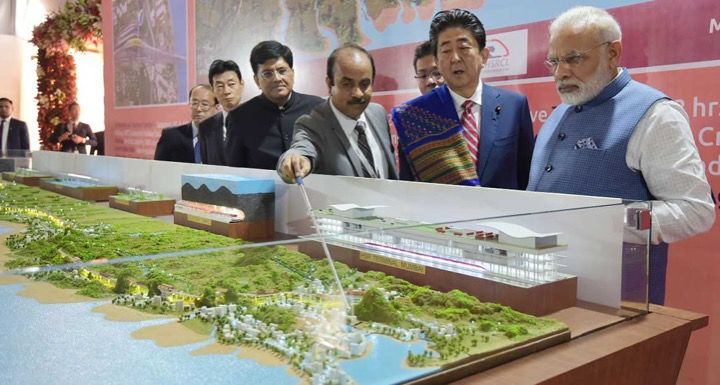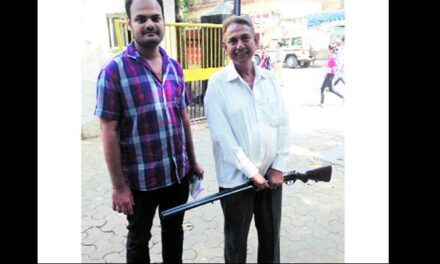Mumbai-Ahmedabad bullet train may face more delays as 1,000 farmers approach court to oppose project


Prime Minister Narendra Modi and his Japanese counterpart Shinzo Abe launched the bullet train project in September last year
Around 1,000 farmers directly affected by the proposed Mumbai-Ahmedabad bullet train submitted affidavits opposing the project in the Gujarat High Court on Tuesday, a development that can further push its realistic deadline.
A division bench of Chief Justice R Subhash Reddy and Justice V M Pancholi is already hearing five petitions challenging the land acquisition process for Prime Minister Narendra Modi’s ambitious and the country’s first high-speed rail project.
Apart from the petitioners, the 1,000 farmers submitted separate affidavits in the high court yesterday to highlight that many more cultivators are affected and opposed to the Rs 1.10 lakh crore project.
The affected farmers, from the various districts where the bullet train route will pass, stated in their affidavit that they do not want to give their land for the project.
They also alleged that the existing land acquisition proceedings are contrary to guidelines of the Japan International Cooperation Agency (JICA), which has provided a loan to the Indian government for the project.
The farmers alleged that the Gujarat government diluted the Land Acquisition Act 2013 after Japan entered into a contract with India for the bullet train in September 2015, and that the state amendment itself violates JICA guidelines.
They told the court that neither their consent was taken, nor any consultations were done with them while initiating the land acquisition.
Further, no social impact assessment for rehabilitation and resettlement was done, and farmers have been kept in the dark about proceedings.
The central government sought more time to file a reply during the hearing.
Farmers’ lawyer Anand Yagnik told reporters that the high court is unable to hear the matter as the centre has been seeking time to submit their reply since the last five weeks.
“These 1,000 affected farmers will be approaching the Supreme Court with a prayer to stay the project. We will mention the matter before the apex court Wednesday for an urgent hearing,” Yagnik said.
The five Surat farmers, in their petitions filed in July, said since the project extends to more than one state (Gujarat and Maharashtra), the Centre should acquire the land.
Another contention of the petitioners is that the market value of the land was not revised, as required under Section 26 of the Land Acquisition Act. The petitioners have also challenged the Gujarat Amendment Act 2016 which tweaked the 2013 law.
It gives “unbridled and unfettered powers” to the state government to exempt any project “in public interest” from the social impact assessment (SIA), they said.
The state government, in its reply, said since the width of land to be acquired for the project is just 17.5 metres, the resettlement issues are minimal.
The entire high-speed rail corridor will require 1,434 hectares of land with 353 hectares in Maharashtra and the rest in Gujarat. This is divided into 7,000 plots, in 195 villages in Gujarat and in 104 villages in Maharashtra.
Since a majority of the land is privately owned, an estimated 6,000 land owners will have to be compensated.
The bullet train project was launched by Prime Minister Narendra Modi and his Japanese counterpart Shinzo Abe in September last year. It was supposed to be inaugurated on August 15, 2022, to coincide with India’s 75th Independence Day.
However, reports last month indicated that the project was already running behind schedule due to several reasons and will only be operational by 2023. The recent resistance by farmers may further delay work, further extending the project’s deadline.













